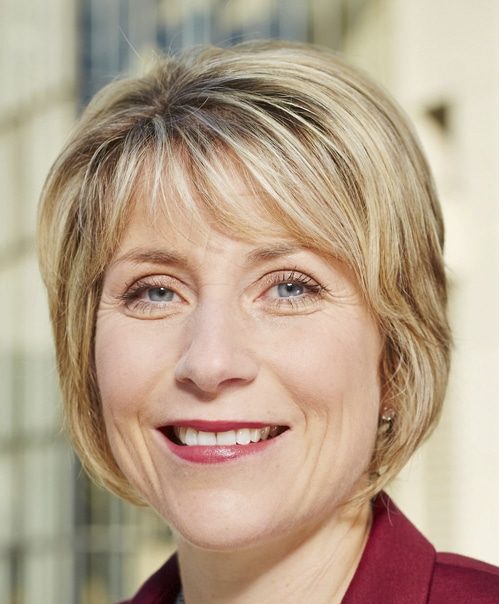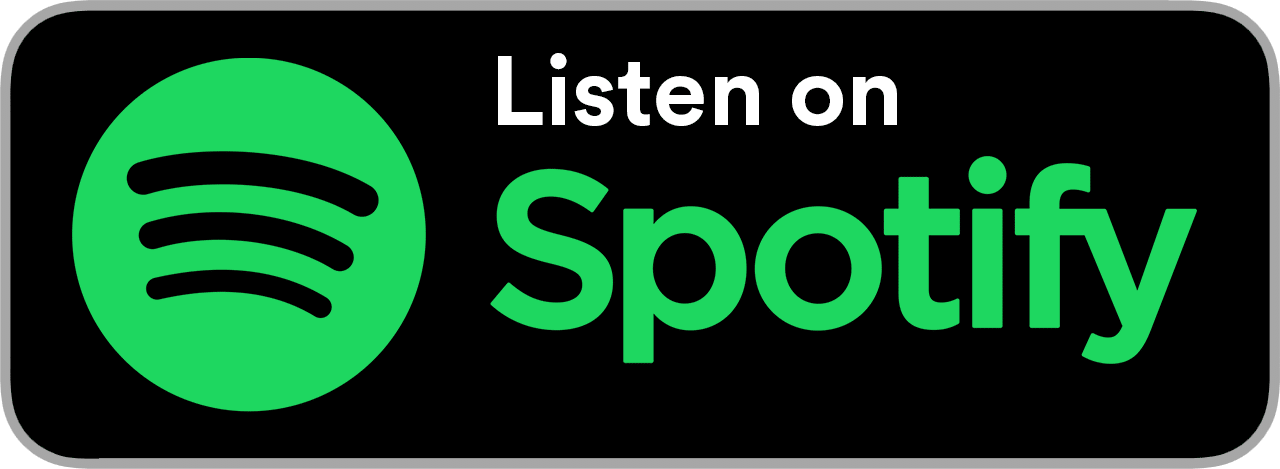Let's Get Physiological Podcast
The second series of our podcast talking to physiologists about their careers, how they got where they are, and what happened along the way.
Series 2
Series 2 of our podcast talks about career challenges, how to overcome them and what tactics to use to advance your career.
Episode 7: How to set up your own research lab
Where do you begin when the time comes to set up your own research lab? How do you build and manage a new team, apply for funding, and source equipment – all while navigating your new role and responsibilities? In this episode we hear from two academics who have both undertaken this mammoth task. They share their top tips for helping new hires and share some of the lessons they’ve learnt along the way.
Join Eleanor Newton as she speaks to Dr Colleen Deane, a lecturer in Muscle Cell Biology at the University of Southampton. And Dr Chris Gaffney, a senior lecturer in Integrative Physiology at Lancaster University.
Episode 6: Transitioning away from academia
Thinking about a change of career and stepping away from your job in academia? Perhaps it’s something you’ve thought about but the idea of searching for your next role seems too daunting? In this episode, we hear one associate professor’s story of quitting her job to become a medical writer and why she hasn’t looked back since. We learn practical tips that could help in the search for your next job. Plus, we hear how to process some of the worries that come with transitioning away from a career in academia.
Join Eleanor Newton as she speaks to Dr Hannah Moir, a senior medical writer at the Emergency Medicine Journal (EMJ) and a Senior fellow at Kingston University. And Janelle Ward, a former researcher who now coaches academics looking to pivot their own careers.
Episode 5: What to do if your academic career has stalled
This week we’re exploring what to do if you feel your academic career has hit a roadblock. With the help of our guests, we learn how to accept career stalls as a natural part of life, why we should try to reframe failure as development in disguise and practical tips on how to keep moving forward in our careers.
Join Eleanor Newton as she speaks to Tracy Forsyth, a Leadership & Executive Coach and the founder of Fast Track to Fearless. And Dr Daniel Brayson, a lecturer in Life Sciences at the University of Westminster.
Episode 4: How to cope with grant disappointment
If you work in science and academia, and find the constant knock backs of applying for funding difficult to cope with, this episode is for you! We share practical tips on how you can make the most of your applications without feeling as though you’ve wasted your time and share some insider tips on how to increase your chances of being accepted for funding. We also learn how to bounce back from the disappointment of a failed grant application.
Join Eleanor Newton as she speaks to Professor Philip Atherton, professor of Clinical, Metabolic & Molecular Physiology, Faculty of Medicine & Health Sciences at the University of Nottingham. And Bruce Daisley, author of “Fortitude: The Myth of Resilience, and the Secrets of Inner Strength”.
Episode 3: How to juggle being a mother with a career in academia
In this episode, we’re asking what happens when you become a mother alongside your job working in science? How do you balance the pressures of academia with your new role as a parent? And do systemic structural barriers still play a role in pushing mother’s away from careers in academia?
Join Eleanor Newton as she speaks to Lisa Heather, British Heart Foundation Fellow and Associate Professor at the University of Oxford. And Isabel Torres, co-founder of Mother’s In Science, an organisation which aims to raise awareness of the barriers that mothers in STEMM face.
Episode 2: How to deal with ‘Imposter Syndrome’
Chances are we’ll all experience feelings of imposter syndrome at some point during our careers but what causes the phenomenon, who does it affect and what can be done about it?
Join Eleanor Newton as she speaks to Rachel Ashworth, Professor of Education in physiology at Three Counties Medical School at the University of Worcester. And Dr Jessamy Hibberd, a chartered clinical psychologist and author of “The Imposter Cure: How to Stop Feeling Like a Fraud and Escape the Mind-trap of Imposter Syndrome”.
Episode 1: Why you should consider having or being a mentor
Looking for a mentor but no idea where to start? Or perhaps you’ve reached a stage in your career where you’re able to share your knowledge and experience with others. In this episode, we hear why seeking out a mentor could help in both your personal and professional growth and why you shouldn’t be afraid to break up with a mentor if the relationship isn’t working for you.
Join Eleanor Newton as she speaks to Dr Mark Dallas, Associate Professor in Cellular Neuroscience at the University of Reading and Reggie Nelson, Author of ‘Opening Doors’.
Series 1
Series 1 of our podcast showcases the latest in physiology research and exploring the quirks of the science of life.
Episode 10: Lockdown
In the final episode of the series, Emily and Amy explore areas of physiology relevant to life in lockdown. They speak to Ben Maylor and Greg Biddle (University of Leicester, UK) about how sedentary behaviour can affect your health, and Susan Lanham-New (University of Surrey, UK) about how life in lockdown could lead to a Vitamin D deficiency.
They also discuss: Which currency is the worst when it comes to spreading bacteria? Will we all come out of lockdown with Rapunzel length hair? And do animals get bored?
Episode 9: Animal physiology
Amy and Emily speak to Martina Quaggiotto (University of Glasgow, UK) about the science behind an interactive e-learning presentation that she has developed called ‘How smart are fish’, and Lucy Hawkes (University of Exeter, UK) about the amazing physiology of birds.
They also discuss: Do bears really hibernate? Can animals talk? And how an experiment involving frogs wearing trousers helped scientists learn about reproduction.
You can access the e-learning presentation ‘How smart are fish?’ here.
Episode 8: Balance
Emily and Amy speak to Doris Bamiou (UCL Ear Institute, UK) about the vestibular system and how it provides our brain with information about where our body is in space, and Raymond Reynolds (University of Birmingham, UK) about what can happen when things go wrong with our vestibular system.
They also discuss: Dizziness in discus and hammer throwers, why some people feel nauseous when watching 3D films, and do blind people have better hearing than sighted people?
Episode 7: Coronavirus (COVID-9)
In this special episode, Amy and Emily speak to Caroline Jolley (King’s College London, UK and King’s College Hospital, UK), Dean Willis (University College London, UK) and Georgina Ellison-Hughes (King’s College London, UK) about the novel coronavirus. They discuss the role of physiologists in the COVID-19 crisis and explore some possible avenues for developing treatments for the disease, including drug repurposing and mesenchymal stem cell transplants.
Episode 6: Space
Emily and Amy speak to Jennifer Ngo-Anh (European Space Agency), Colleen Deane (University of Exeter, UK) and Jim Pawelczyk (Penn State University, US) about the physiological challenges of space travel (and possibly living on Mars!).
They also discuss: How long can a human stuck on Mars survive off potatoes? The ultimate cure for snoring, and the strange link between autonomous cars, locusts and star wars.
Episode 5: Pressure
Amy and Emily speak to Lydia Simpson (Bangor University, UK) about her research into populations living at high altitude, and James Clark (King’s College London, UK) about what happens to our bodies during diving.
They also discuss: How physiologically accurate is the shark film 47 Meters Down? Can being at high altitude lead to weight loss? And the weird and wonderful world of projectile penguin poo.
Episode 4: Metabolism
Emily and Amy speak to Alistair Black (Leeds Beckett University, UK) about his research into carbohydrate metabolism during exercise, and Barbara Cannon (Stockholm University, Sweden) about brown adipose tissue.
They also discuss: Could Violet Beauregarde really have turned into a blueberry in Willy Wonka and the chocolate factory? Does eating breakfast kick-start your metabolism? And how can our body tell if a crisp is stale?
Episode 3: Respiration
Amy and Emily speak to Mike Tipton (University of Portsmouth, UK) about how his research influenced the recent RNLI Respect the Water campaign, and Laura Crotty Alexander (University of California San Diego, US) about the hidden dangers of e-cigarettes.
They also discuss: Could Rose really have survived the cold water in Titanic? What is the world record for breath holding? And what are the benefits of unilateral nostril breathing?
Episode 2: Chronobiology
Emily and Amy speak to Carol Bussey (University of Otago, New Zealand) about her research into circadian rhythms of the heart, and Robbie Jones and Pardeep Pabla (University of Nottingham, UK) about their recent study into how meal timings can impact on our physiology.
They also discuss: Why wasn’t George Clooney constantly jet lagged in ‘Up in the Air’? Is daylight saving time a dangerous phenomenon? And how did scientists find a cure for jet lag in hamsters?
Episode 1: Sport and Exercise Science
Amy and Emily speak to Sam Scott (York University, Toronto, Canada) about his recent research into high intensity interval training, and Ruth Wood (University of Southern California, US) and Ildus Akhmetov (Liverpool John Moores University, UK) about how testosterone can affect athletic performance.
They also discuss: can you eat before you swim? Could Forrest Gump really have run that far? And how fast can you swim through syrup?

This podcast is a great way to showcase current physiology research and would make excellent listening for anyone who is aiming to study or currently studying physiology or with an interest in physiology, particularly undergraduate students!
Charlotte Haigh, Education, Public Engagement & Policy Committee member


